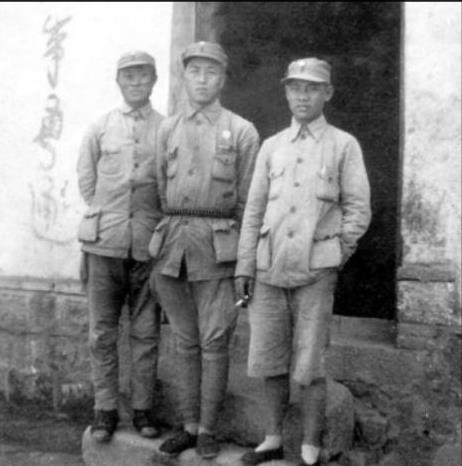Among the 12 columns of the Northeast Field Army, generals such as Wan Yi, Zeng Kelin, Hu Qicai, and Duan Suquan were all replaced from the post of column commander.

From the perspective of record and ability, Hu Qicai was replaced as the deputy commander of the column. Not only can he not figure it out himself, but many people can't figure it out either.
Hu Qicai was very famous in the northeast battlefield and fought two battles. One was the Battle of Xinkailing and the other was the Battle of Tashan.
In 1946, he led his troops to lure the enemy deeper, completely annihilating the 25th Division known as the "Thousand Mile Ju Division", creating the first annihilation of the Northeast Democratic Coalition Army.
The Battle of Xinkailing was the first time that Hu Qicai fought a major battle after serving as the commander of the 4th Column, and it was victorious and of great political and military significance.
Because in February 1946, the 4th Column of the South Manchuria Military Region lost a battle in the Battle of Shaling, the morale was extremely low, coupled with the difficulties in the base area, many soldiers' thinking fluctuated.
The Battle of Shaling was commanded by the first commander, Wu Kehua, and after the battle, he went to the rear due to illness, and Hu Qicai served as acting commander and commander.
It has to be said that the Battle of Xinkailing made the 4th Column fight a turnaround battle and boosted the morale of tens of thousands of commanders and fighters of the South Manchuria Military Region.
Win the battle, but be demoted, can't figure it out
In the spring of 1948, the Liaodong Military Region was abolished and the leadership of the Military Region was decentralized, and Wu Kehua, who was the chief of staff of the Liaodong Military Region, and Mo Wenhua, deputy political commissar, were sent to the 4th Column to replace Hu Qicai and Peng Jiaqing.
Hu Qicai could not think clearly of such an appointment, he felt that he had been leading his troops to fight, and he had fought many hard battles and won battles, and he had been demoted for no reason.
What is the real situation?
Hu Qi's ability to fight in the war is obvious to all, but he often went to the rear to recuperate due to illness, and many of the work of the troops was taken care of by Han Xianchu, the deputy commander at the time, and Peng Jiaqing, the political commissar.
If the troops want to fight a big battle, the leader of the column is not physically good, so how can they command the troops? This may be a matter of consideration at Headquarters. Change him from commander to deputy commander, more for physical reasons.
Let Wu Kehua be the commander, because he is the first commander of the fourth column and is familiar with the troops, although he has been away from the troops for 2 years.
Lin Zong will general Hu Qicai, stationed at Tashan Mountain
In 1948, the Liaoshen Campaign began, and the capture of Jinzhou was the first step of the Northeast Democratic Coalition Army in the Liaoshen Campaign.
The headquarters gave the 4th column the task of holding out at Tashan for 7 days and covering the main force to successfully take Jinzhou.
Tashan is a place where there is no danger to defend, how to resist the enemy, Hu Qi went to the front line to inspect the troops and adjust the operational deployment. Chiang Kai-shek sent 11 divisions to attack Tashan, and whether Hu Qicai led 4 columns could hold on to it was a great test.
In order to enhance the confidence of the commanders and fighters, Hu Qicai sat on the front line, and it was necessary to ensure that people fought in the positions, and Wu Kehua was in the rear of the basic headquarters.
In this way, a fierce trench battle broke out, and the 4th Column faced the artillery fire of land, sea and air, and held on to it and fought repeatedly. In the end, it was not until the main force took Jinzhou that the battle ended.
In a strict sense, Hu Qicai's most brilliant battle record was to garrison Tashan, he was the front line commander, and in the Battle of Xinkailing, the front line commander was Han Xianchu, who was dispatched in the rear basic headquarters.